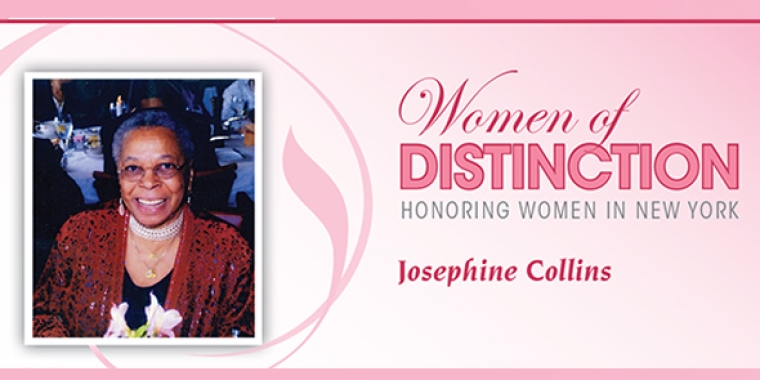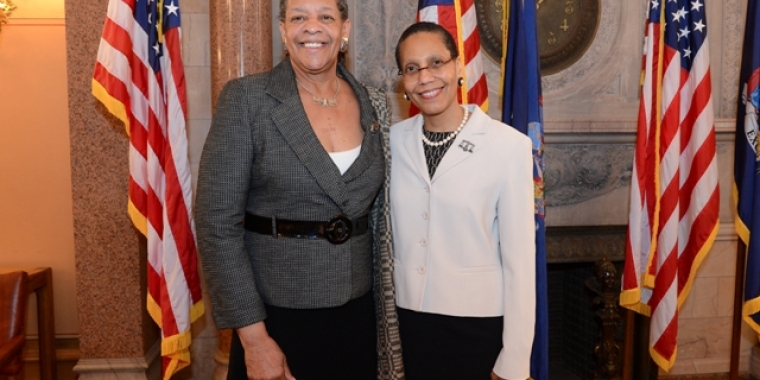
Senator Hassell-Thompson Urges Women To Protect Themselves Against Cervical Cancer Through Regular Screening

State Senator Ruth Hassell-Thompson (D-Bronx/Westchester) today encouraged every adult woman to take advantage of Pap smear screening, which tests for cancer of the cervix, the lower, narrow end of the uterus or womb. January is Cervical Cancer Screening Month.
"Most of us never realize how much we take our good health for granted until something goes wrong," Senator Hassell-Thompson said. "What could be simpler than taking the first step of scheduling a Pap smear, and being proactive in our approach to our own health. It may be the most important decision we ever make."
Since the introduction of the screening test known as the Pap smear in the 1950s, the death rate for cervical cancer has dropped by more than 70 percent. Studies now show that cervical cancer is usually caused by a common, sexually transmitted virus known as the human papilloma virus (HPV). While more than 100 strains, or types, of HPV have been identified, only a few "high risk" strains can lead, in rare cases, to cervical cancer.
"Every woman needs to be aware that cervical screening for HPV is an essential tool in the fight against this highly preventable cancer," Senator Hassell-Thompson said. "This is especially true for African-American and Hispanic women, whose rate of cervical cancer is significantly higher than that of Caucasian women."
By age 50, at least 80 percent of American women will have acquired an HPV infection. Since infections typically show no symptoms, however, women are often unaware they are infected. Thankfully, the body's immune system clears the infection in most cases. Only certain types of HPV infection that persist can lead to cervical cancer.
Senator Hassell-Thompson noted that new screening methods have improved accuracy as well as the ability to test for high-risk HPV strains. On a related note, the Food and Drug Administration recently approved the first cervical cancer vaccine for girls, providing protection against two types of HPV responsible for about 70 percent of all cervical cancers.
Senator Hassell-Thompson noted that New York's Healthy Women Partnership Program provides breast and cervical cancer diagnostic and treatment services for women who are low-income, uninsured, or under served, and further information about eligibility can be obtained by calling Cancer Information Services at 1-800-422-6237. "All women require access to cancer-screening tools, and no one should be denied these services because of an affordability issue," Senator Hassell-Thompson stressed.
"Too many women fail to take advantage of cervical screening, and unfortunately, in the end, suffer serious consequences," Senator Hassell-Thompson concluded. "Experts estimate that about one third of women who should have regular Pap smears fail to do so. For your own peace of mind, I would strongly encourage any woman who is not sure whether she needs regular cervical screening to speak with her gynecologist or family physician. Your life may depend on it."
Further information about cervical cancer screening may also be obtained by visiting the state Health Department’s website at www.health.state.ny.us/.


